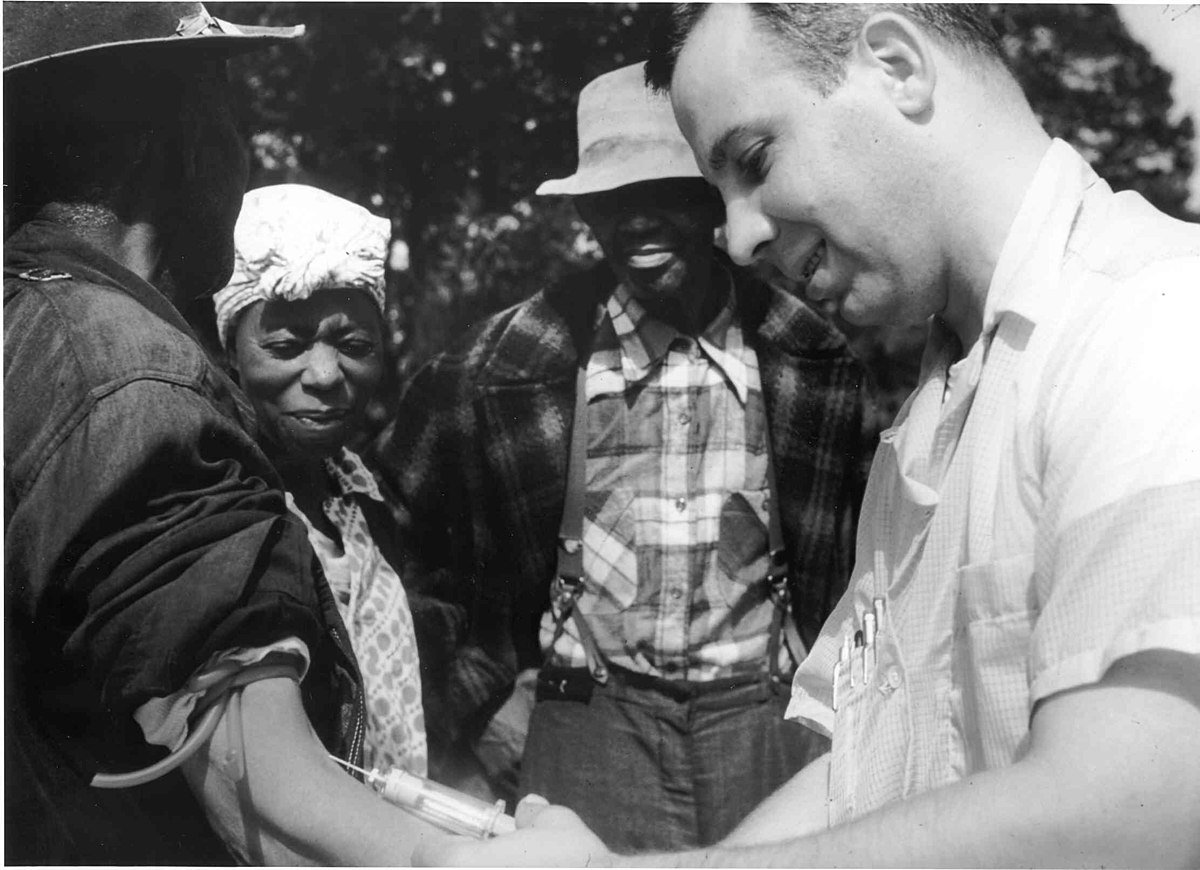The Tuskegee Syphilis Study, officially titled “The Tuskegee Study of Untreated Syphilis in the Negro Male,” was a study conducted by the United States Public Health Service (PHS) from 1932 to 1972. It involved nearly 600 impoverished African-American in Tuskegee, Alabama, with the aim of observing the effects of untreated syphilis on the human body. The men were not informed about the true nature of the experiment and were deceived by the researchers.
The unethical nature of the study came to light in 1972 when it was exposed by a whistleblower, Peter Buxtun. The study had a lasting impact on public health efforts and contributed to a deep-seated mistrust within the African American community towards medical professionals and government health initiatives.



It’s unfortunate the things that have been done in the name of science. But, it’s hard to imagine where we’d be today without them. I’m conflicted. Obviously, no human should be treated like this. At the same time, how else could we know what we know? Rightfully, the families of those affected should be greatly compensated for what happened to their ancestors.
How else? Scientific research has shown that this is usually not necessary. Maybe in the 1600s, but not in the last 100 years!
Since you’re so conflicted, how about next time, we test something incurable on you, without you knowing it? for SCIENCE, of course. I hope you keep that enthusiasm for science when we do tell you tho.
Thank you for your service, in advance.